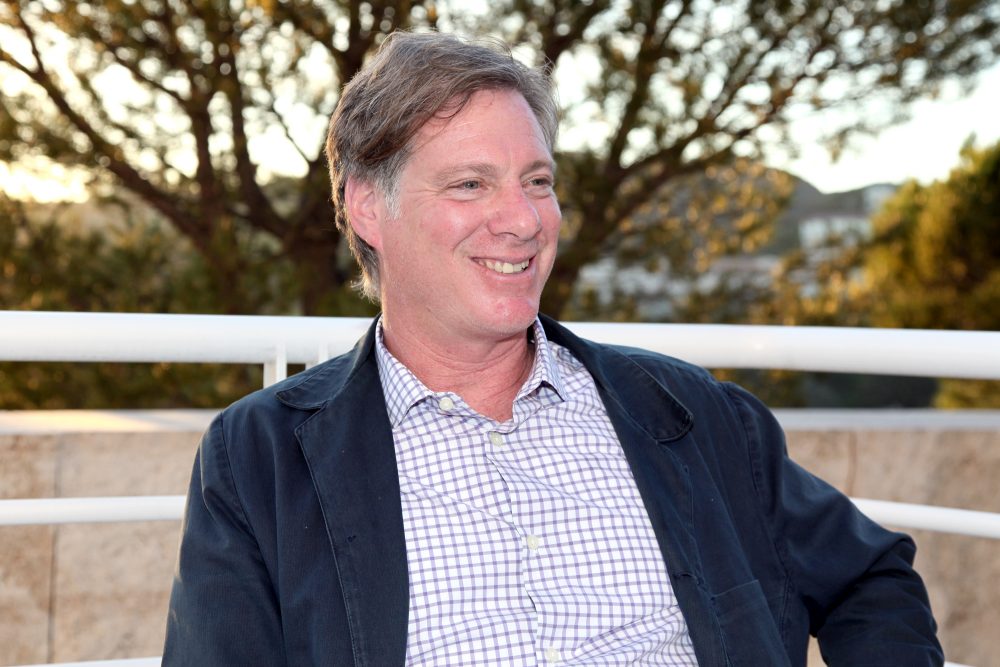
Photo by Aaron Salcido.
Peter Tokofsky is an education specialist at the J. Paul Getty Museum. Before moderating a Zócalo/Getty “Open Art” panel discussion at the Getty Center in Los Angeles to consider the question, “Does Art Capture Reality Better Than the News?” he chatted in the Zócalo green room about playing the clarinet, Swiss carnivals, and German ghosts.
What’s the best advice you ever received?
It was from the great filmmaker Les Blank: “Stand behind the camera when you ask questions.” And another person said to me, “No matter how much money you have, you always think you need more, so don’t worry about it.” That turns out to be true.
What’s a book you find yourself going back to and re-reading?
Well, I use the dictionary a lot. I have an academic background, so I tend to go back to academic books more than fiction. One book that I look to fairly often, to remind myself if I’ve really got the argument right, is Highbrow/Lowbrow by Lawrence W. Levine. There’s a book called The Ghosts of Berlin [by Brian Ladd] that helped me understand Berlin, where I go every year.
Which country would you most like to live in other than the United States?
I’m very comfortable in Germany, which is unusual given my Jewish background, I suppose. But I’m very comfortable with the sense of public sphere there, and I’ve been writing to my friends there recently that they might have to save us, since they owe us one.
Do you play a musical instrument?
As a child I played clarinet, and I suppose everyone who played an instrument when they were a child and then stopped wishes they hadn’t. Today I’d love to have an instrument—maybe I will one day have one that I can pick up and do something worthwhile with.
What’s the most beautiful film you’ve ever seen?
Probably Breaking the Waves. The power of that film is that it’s so beautiful and yet so difficult.
Did you have any nicknames as a kid?
It’s an interesting phenomenon that I’ve never inquired about, but some people call me Peter and some call me Pete. But if somebody who 20 years ago called me Pete came up to me and said “Peter,” it would sound wrong.
Was there a teacher who changed your life?
There’s my fifth and sixth grade teacher, Cathy Makoul, who remained a contact until the end of her life. She had a post-1960s kind of “open classroom,” read us stories on couches. My college professor Alan Dundes led me to pursue my first professional life as a folklorist. Just a larger-than-life, charismatic, brilliant, engaged teacher at Berkeley.
If you could time travel to the past or future, when would you pick?
My parents are from New York, and I heard stories about what it was like back in the day, so there might be something to that. But my more conventional idea, since I previously spent time studying carnivals in Switzerland and Germany, and there’s lots of lore about how they developed, I’m interested in going back about 100 years to those places and seeing what they looked like. But it’s really more about the place than the time.



